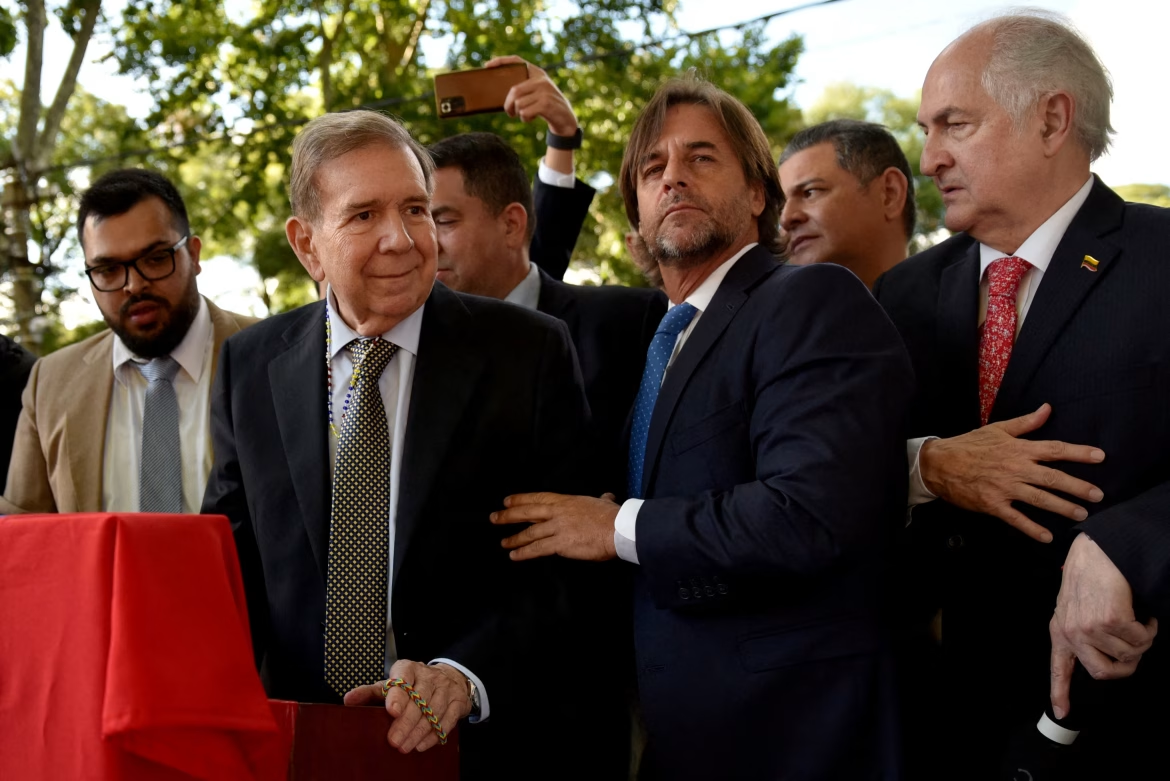The opposition leader of Venezuela, who contests President Nicolas Maduro’s electoral victory, recently met with U.S. President Joe Biden. This meeting comes against the backdrop of ongoing international disputes regarding the legitimacy of Maduro’s presidency.
The United States, along with several European nations, has rejected the official results of Venezuela’s recent elections, claiming that they were neither free nor fair. The opposition has similarly disputed the outcome, accusing President Maduro of manipulating the electoral system to maintain his grip on power. These accusations have contributed to Venezuela’s political crisis, which has persisted for several years.
The meeting between President Biden and the Venezuelan opposition leader was not publicized in advance. This reflects the sensitive nature of U.S.-Venezuela relations. The two spoke about the election and possible pathways to restoring democratic norms in Venezuela. The U.S. has been a vocal critic of the Maduro regime since his controversial re-election. Washington has imposed several rounds of sanctions on Venezuelan officials and institutions, citing human rights violations and corruption. The Biden administration, similar to its predecessor, recognizes the opposition leader as Venezuela’s legitimate interim president.
Both leaders discussed potential strategies for increasing international pressure on the Maduro government. They also spoke about how to rally support for a possible new election monitored by international observers. This meeting marks a continuation of a broader U.S. policy initiative aimed at applying diplomatic pressure on Venezuela’s government.
While the Biden administration advocates for democratic restoration in the country, it also focuses on mitigating the humanitarian crisis that has emerged. Venezuela faces widespread shortages of medicine and food. Millions of citizens have fled the country, seeking asylum in neighboring nations. These pressing issues were likely high on the list of topics discussed during the meeting.
The United States remains concerned about Venezuela’s impact on regional stability. Economic collapse and social unrest have driven an unprecedented refugee crisis, posing challenges to regional governments. The massive migration flow affects countries like Colombia, Peru, and Brazil, which have absorbed most of the displaced Venezuelans.
The diplomatic talk between the U.S. and the Venezuelan opposition leader comes amid indications that the European Union may review its stance. The EU, aligning with the U.S., has not recognized Maduro’s victory. However, some EU countries are considering a more pragmatic approach due to their energy dependencies as a result of the ongoing war between Russia and Ukraine. This geopolitical shift places Venezuela, a country with vast oil reserves, back into the global dialogue, potentially affecting how western nations interact with Maduro’s administration.
Discussions with the U.S. also covered how to help alleviate Venezuela’s economic strain while pushing for democratic changes. Potential actions such as phased sanctions relief and targeted economic support tied to governmental reforms could play roles in these strategies.
The U.S. State Department has reiterated its support for a peaceful, negotiated solution to the Venezuelan crisis. This includes a plan aimed at restoring Venezuela’s democracy through fair and transparent elections. Observers note that the recent talks with the opposition leader underscore a commitment by the Biden administration to maintain the status quo on Venezuela.

